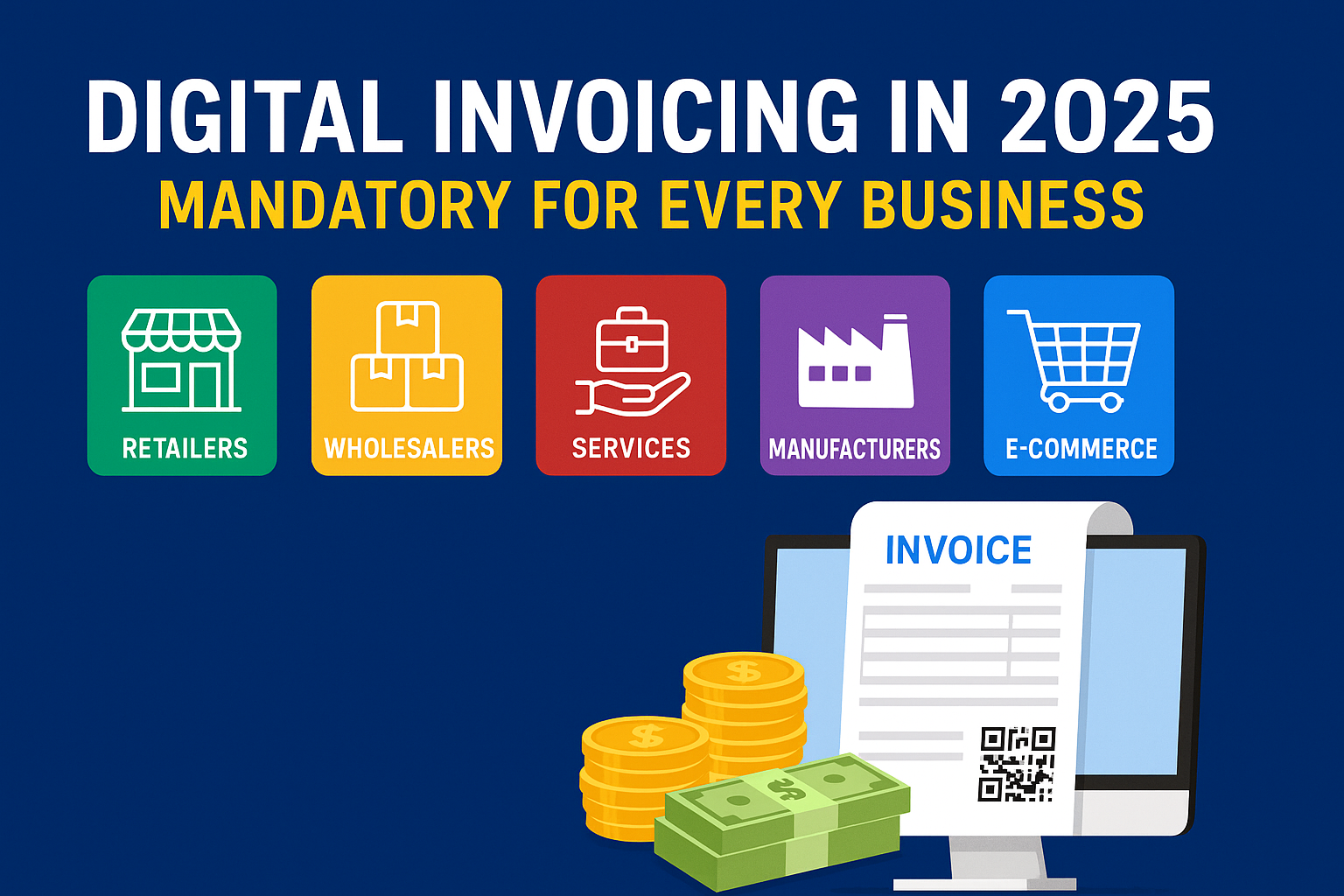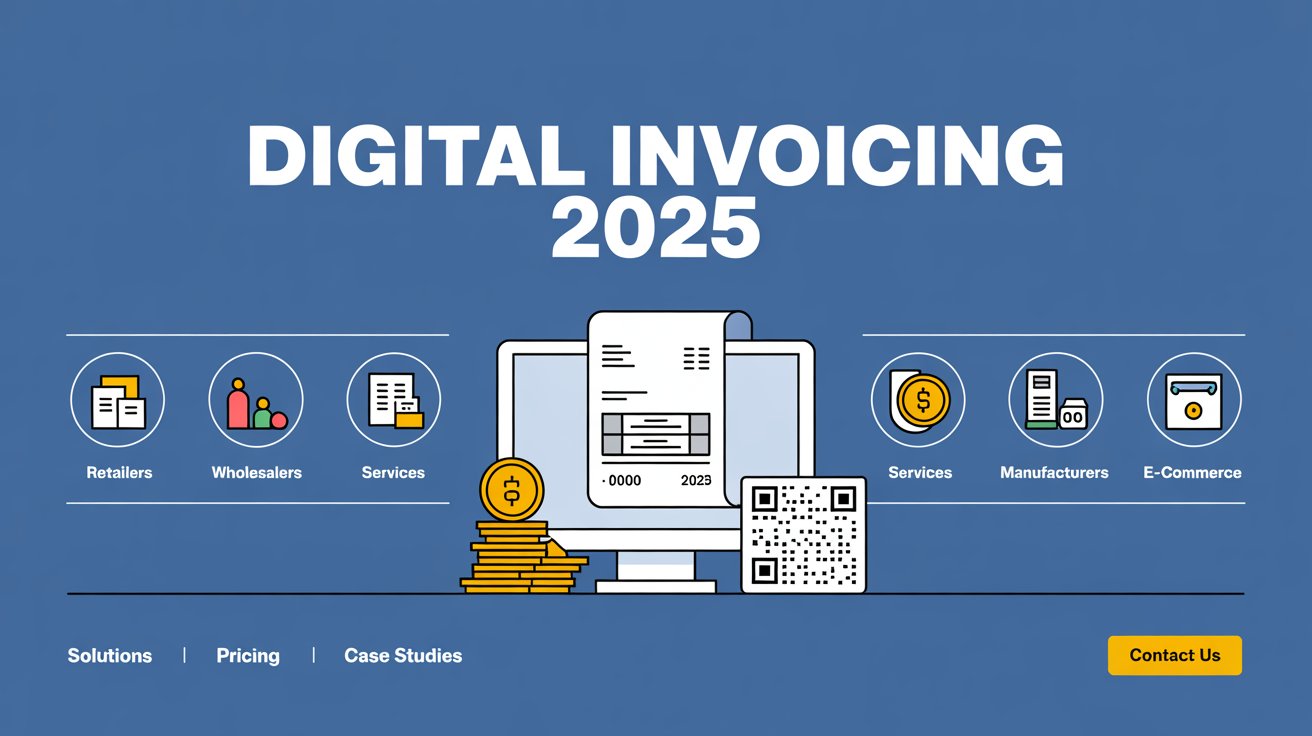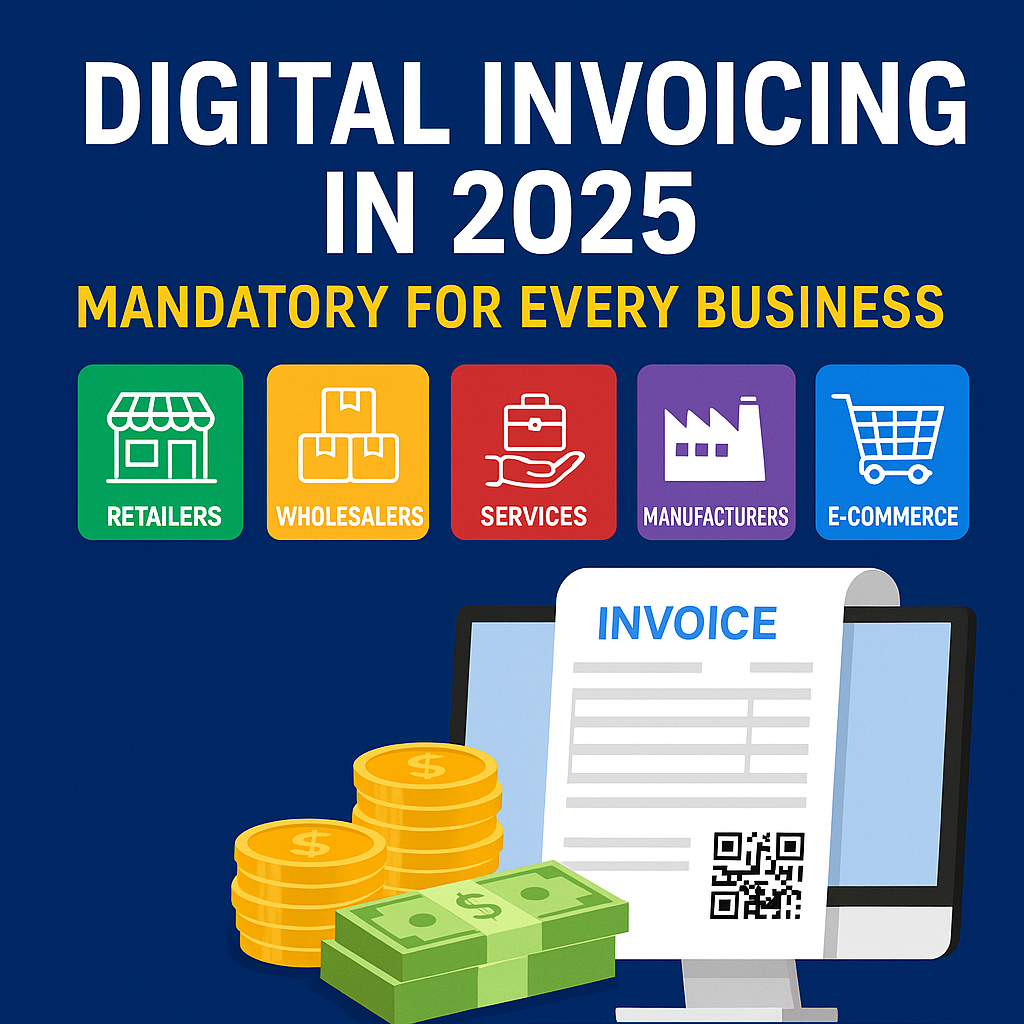FBR’s Expanding Enforcement Strategy Across the Business Spectrum
As Pakistan’s tax framework evolves in 2025, the Federal Board of Revenue (FBR) is no longer limiting Digital Invoicing requirements to just Tier-1 retailers. Through a series of official notifications — including SRO 1005(I)/2021 and subsequent updates — the scope has expanded to include wholesalers, service providers, manufacturers, importers, and other sectors previously considered outside the immediate compliance net.
What began as a retail-focused requirement is now part of a broader national policy: to ensure that every business with taxable transactions is issuing real-time, FBR-verified digital invoices.
Which Businesses Are Required to Use Digital Invoicing?
Under current regulations and sector-specific notifications, the following categories are actively being brought into the Digital Invoicing framework:
 1. Tier-1 Retailers
1. Tier-1 Retailers
Defined under Section 2(43A) of the Sales Tax Act, Tier-1 retailers are required to use integrated POS systems that report directly to FBR. This includes:
- Large retail chains and branded outlets
- Stores with electricity bills exceeding the monthly threshold
- Businesses operating in shopping malls or air-conditioned premises
2. Wholesalers and Distributors
As per updates issued in SRO 183(I)/2022, many wholesalers and distribution businesses — particularly those supplying FMCG, electronics, or pharmaceuticals — are required to issue digital invoices to track bulk transactions and tax points in the supply chain.
3. Manufacturers and Importers
Sectors involving large production volumes or imported goods are now required to issue FBR-verified invoices at the time of dispatch or clearance. This ensures traceability and proper tax documentation from origin to end consumer.
4. Registered Service Providers
Professional service firms — including those in IT, logistics, consultancy, marketing, and other B2B sectors — are being notified to adopt Digital Invoicing, especially if they are sales tax registered. This helps FBR monitor non-goods-based revenue that was historically difficult to track.
5. E-Commerce and Online Sellers
Businesses selling through platforms like Daraz, Shopify, or their own websites — or even via social media and WhatsApp — are being brought under the net. As digital sales grow, FBR’s enforcement now includes digital businesses operating with significant turnover or formal tax registrations.
6. Businesses Using ERP or Accounting Software
Companies using systems like SAP, Oracle, and QuickBooks are encouraged — and in many cases required — to integrate with FBR’s Digital Invoicing system. These platforms already support structured data and can be configured to comply with tax reporting standards.
Gradual Enforcement by Sector and Threshold
FBR is implementing Digital Invoicing in phases, based on risk profiling, volume of transactions, and revenue visibility. The agency uses a combination of third-party data, utility usage, and banking activity to identify businesses that should be using the system — whether or not they’ve received a notice.
This means every business in a targeted sector — even those not yet formally notified — should be preparing to implement Digital Invoicing before enforcement reaches them.
Why This Affects Every Business
The shift in 2025 is not about size or sales volume — it is about visibility and traceability. Once a sector is notified under an SRO, every business in that sector is responsible for compliance. Even businesses that do not traditionally consider themselves “large” can be required to use Digital Invoicing if they:
- Serve corporate clients
- Are VAT/Sales Tax registered
- Use formal bank accounts and issue invoices
- Appear in FBR data clusters based on utility or payment activity
 How CABCS Can Help
How CABCS Can Help
CABCS helps every business identify whether it is included under current or upcoming SRO mandates, supports Digital Invoicing implementation, and provides tailored guidance for wholesalers, service providers, and manufacturers. Our team ensures a smooth transition from manual or partial invoicing to full compliance — without disrupting daily operations.

